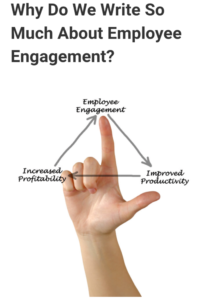Please watch this 3-minute-long promo video for Grapheal’s TestNPass application.
This is the “solution” (digital identity health pass) that has motivated the “problem” (the declared illness) and the “reaction” (the economic and social collapse that will justify the Build Back Better, or Great Reset).
More than Simply a Health Pass
This digital credential-verifying technology eventually will be used to register every possible data point generated about each one of us. This data will form our unique human capital profiles, which will, in turn, determine what “privileges” we are “allowed” to access. Some privileges will require that we comply with “personalized” recommendations for “wellness” or “social responsibility.”
Notice that IBM offers a health credential passport, a learning credential passport, and more using the foundation of blockchain distributed ledger technology.
Behind the theatrics of the Covid 19 pandemic, a seismic shift in corporate and economic structures is underway, and the digital passport introduced in response to a “public health crisis” is the prologue to a full-scale digital identity credential passport that will serve the new model. On short, corporations are transitioning their business strategies from shareholder capitalism to stakeholder capitalism.
Stakeholder capitalism is as brutal as the name sounds, which is why this Emperor is clothed in a tapestry of pleasant buzzwords such as Resilience, Sustainability, Inclusiveness, Equity, Innovative, Accountability, Collaborative, Transparent, and Diversity. These terms give us the impression that ESG investing – the new model of “socially-responsibile investing” that purports to benefit all ‘stakeholders’ – represents genuine progress from profit-oriented shareholder capitalism to something more beneficial to “the community.” Not so, however.
ESG Investing incorporates Human Capital metrics into a corporation’s overall, ESG profile – a profile that determines whether the firm will receive capital investments from banks and other lenders. The Digital Credential Passport will be the tool for tracking not only employees’ health statuses, but also their larger social responsibility (ESG) profile, as captured through Smart City infrastructure and the expanding Internet of Things. If an employee is not ‘committed’ to the attitudinal and behavioral goals deemed appropriate to a good 21st-century global citizen – viz. the UN SDGs or Global Goals, which are commercialized in the Stakeholder Capitalism Metrics – his or her employer will intervene to correct that, assigning professional development training that measures attitudes before and after the assigned intervention (tracking impact / investments in the workforce). Moreover, as a result of AI processing of employment applications, anyone who does or is likely to fall short of good global citizen status will probably find that he or she has very limited, if any, ‘access’ to employment at all.
Tracking Employees’ Loyalty to the Firm
We also see that, in the Built-Back-Better economy, employees will be expected to have, in addition to a commitment to the Global Goals, a level of engagement to the firm that leads to his or her personal promotion of the firm even and especially during off-the-clock life. In this industry piece from Marketing Insider Group, CEO and author of the book Mean People Suck Michael Brenner writes:
Statistics show that employee engagement does indeed drive marketing ROI by a significant percentage. The more business your engaged employees bring in, the more it drives up profits. …
A Loyalty 360 study supports that conclusion. Reporting customer retention rates 18 percent higher for companies whose employees are “highly engaged,” the study demonstrates the impact engaged employees can have on this sought-after marketing metric.
- That kind of engagement can only happen when every department acts as the right arm of the marketing team.
- That kind of collaboration depends on the marketing team’s initiative to get everyone from the CEO to the janitor and everyone in between involved in marketing efforts.
In the 4IR future of work, corporations will expect employees to be their “walking billboards” and brand ambassadors. The Framework for Inclusive Capitalism recommends instituting pay equity on the basis of an accurate assessment of the value that an employee creates for the company. Here again, this is where a digital access pass, based on blockchain distributed ledger technology, proves its worth beyond health-related applications – the access pass can hold massive amounts of data about all sorts of employee choices, attitudes, and interactions – occurring both on- and off- the-clock and recorded by multiple sources – that might have some bearing on the company brand.
This brand ambassador ledger becomes an important tool in standardizing human capital scores for pay equity initiatives, especially insofar as employee behavior during non-working hours has the potential to generate steep ROI for companies that have ‘activated’ their employees.
When you activate your employees, though, it’s marketing magic. Activation includes a wealth of tools to empower your employees to become walking billboards for your company, including:
- Training that not only makes them more informed about your products, but also allows them to climb up the corporate ladder – imagine – you gotta love a company that trains you to qualify for a better job
- Permission to post content on social media and elsewhere about your company’s culture, products, and services
Involvement in creating blog posts, videos, white papers, and other “official” marketing content, creating a platform on which they can showcase their expertiseOnce your employees start sharing the love your company has shared with them, it will pay off. Not only will it pay off in good vibes, but it will also likely make a huge impact on your bottom line.
Source: Michael Brenner, “21 Marketing Trends You Need to Know For 2022,” Marketing Insider Group, 2021
Since positive comments and posts about an employer on an employee’s personal social media account create significant value/profits for the firm, corporate strategy will include investments in activation programming, new and existing personnel who are amenable to being activated, and technologies such as a digital access pass which enable firms to measure and manage the value of their investments in employee activation.
The willingness to stake one’s own reputation on the company brand – and one’s effectiveness at so doing (which may be determined by consulting the ledger of interactions written to a digital access pass) – will be a major factor in determining a person’s ESG Score, or human capital score. That score is the employee’s key to unlocking privileges across many sectors – personal, professional, mobility and recreation, etc., and is also an opportunity for market speculators to make big bets on how one will fare in the human capital futures index.
Will anyone actually go along with this program for total surveillance and corporate behavioral engineering of employees? Unfortunately, yes. Most people will accept the access pass and the program that comes with it because the corporate resetters are demolishing the economy and engineering human labor surpluses in order to create massive unemployment. Jobs will be few and hungry families will be many. This is their strategy to force people to accept the “activation.” The digital identification system is about behavioral conditioning and control.




